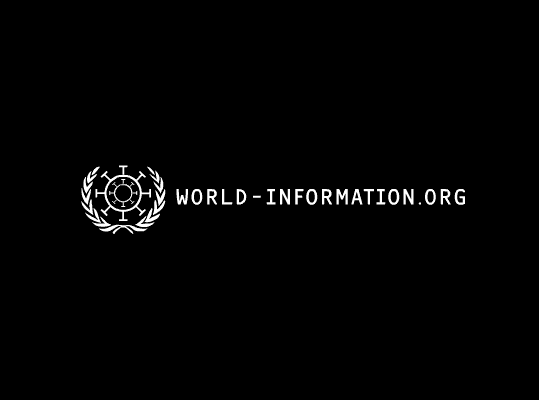Mary Joyce (ed.): Digital Activism Decoded. The New Mechanics of Change (2010)
Filed under book | Tags: · activism, facebook, mass media, media activism, social movements, twitter, web 2.0

The media have recently been abuzz with cases of citizens around the world using digital technologies to push for social and political change—from the use of Twitter to amplify protests in Iran and Moldova to the thousands of American nonprofits creating Facebook accounts in the hopes of luring supporters.
These stories have been published, discussed, extolled, and derided, but the underlying mechanics of the practice of digital activism are little understood. This new field, its dynamics, practices, misconceptions, and possible futures are presented together for the first time in Digital Activism Decoded.
Topics include:
* how to think about digital activism
* the digital activism environment: infrastructure, social, political, and economic factors
* digital activism practices: two research perspectives and the danger of destructive activism
* digital activism’s value: balancing optimism and pessimism
* building the future of digital activism
Publisher: International Debate Education Association, New York, June 2010
Licensed under the Creative Commons Attribution License BY-NC 3.0 US.
ISBN 978-1-932716-60-3
228 pages
Video from the book launch and discussion
More
World-Information: Special IP Edition & IP City Edition (2003, 2005)
Filed under magazine | Tags: · democracy, digital human rights, human rights, media activism, politics, technology

World-Information.Org is a trans-national cultural intelligence provider, a collaborative effort of artists, scientists and technicians. It is a practical example for a technical and contextual environment for cultural production and an independent platform of critical media intelligence. Through artistic and scientific exploration of information and communication technologies World-Information.Org disseminates an understanding of their cultural, societal and political implications, and fosters future cultural practice. World-Information.Org is an agent of digital democratisation and the pursuit of digital human rights. Enlightening the opportunities, challenges and risks of information and communication technology, World-Information.Org provides information necessary for a democratic development of society, culture and politics.
Special IP Edition
World Summit on the Information Society, Geneva, 10-12 December 2003
Editors: Eva Pressl, Wolfgang Suetzl
Concept: Konrad Becker, Felix Stalder
Production: Wolfgang Brunner
Published by World-Information.Org, Vienna
Creative Commons Attribution-ShareAlike 1.0 License
PDF, PDF (updated on 2017-12-3)
IP City Edition
World Summit on the Information Society, Tunis, 16-18 November 2005
World-Information City, Bangalore, 14-20 November 2005
Editors: Wolfgang Suetzl, Christine Mayer
Concept: Konrad Becker, Felix Stalder
Production: Andrea Ressi
Published by World-Information.Org, Insitute for New Culture Technologies/t0 Netbase, Vienna
Creative Commons Attribution-ShareAlike 2.5 License
PDF, PDF (updated on 2017-12-3)
Comment (0)David Joselit: Feedback: Television Against Democracy (2007)
Filed under book | Tags: · activism, art history, media activism, politics, television, video art

American television embodies a paradox: it is a privately owned and operated public communications network that most citizens are unable to participate in except as passive specators. Television creates an image of community while preventing the formation of actual social ties because behind its simulated exchange of opinions lies a highly centralized corporate structure that is profoundly antidemocratic. In Feedback, David Joselit describes the privatized public sphere of television and recounts the tactics developed by artists and media activists in the 1960s and 1970s to break open its closed circuit.
The figures whose work Joselit examines—among them Nam June Paik, Dan Graham, Joan Jonas, Abbie Hoffman, Andy Warhol, and Melvin Van Peebles—staged political interventions within the space of television. Joselit identifies three kinds of such image-events: feedback, which can be both disabling noise and rational response—as when Abbie Hoffman hijacked television time for the Yippies with flamboyant stunts directed to the media; the image-virus, which proliferates parasitically, invading, transforming, and even blocking systems—as in Nam June Paik’s synthesized videotapes and installations; and the avatar, a quasi-fictional form of identity available to anyone, which can function as a political actor—as in Melvin Van Peebles’s invention of Sweet Sweetback, an African-American hero who appealed to a broad audience and influenced styles of Black Power activism. These strategies, writes Joselit, remain valuable today in a world where the overlapping information circuits of television and the Internet offer different opportunities for democratic participation.
In Feedback, Joselit analyzes such midcentury image-events using the procedures and categories of art history. The trope of figure/ground reversal, for instance, is used to assess acts of representation in a variety of media—including the medium of politics. In a televisual world, Joselit argues, where democracy is conducted through images, art history has the capacity to become a political science.
Publisher MIT Press, 2007
ISBN 0262101203, 9780262101202
210 pages
PDF (updated on 2012-10-5)
Comment (0)
